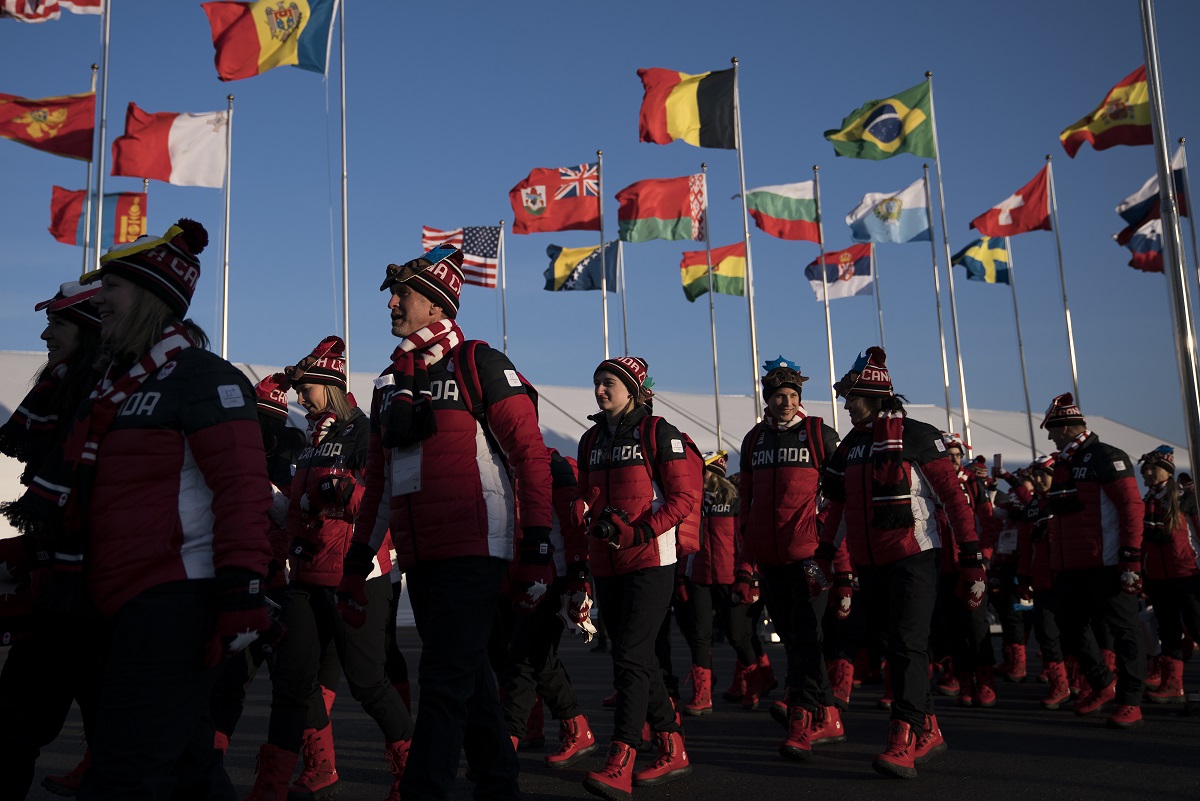
PYEONGCHANG, South Korea (AP) — Signs posted around the Olympic venues urge extreme caution. Nine hundred troops stream into the area to help. Worried organizers sequester 1,200 people in their rooms.
Officials are scrambling on the eve of the biggest planned event in South Korea in years — not because of anything related to North Korea and national security, but in an attempt to arrest the spread of norovirus at the Pyeongchang Games.
Local media are fretting over a “virus panic.” South Koreans, always quick to air their views online, have poured scorn on the government’s response and preparations. Are the games hygienic? What will people think about South Korea? Could this spread to the athletes?
Norovirus fears may turn out to be much ado about nothing. But with a national reputation on the line, officials are scrambling to contain its spread. No one here wants these games associated more with disease than athletics in the manner that Zika, a mosquito-borne disease that causes rare birth defects in a small proportion of cases, loomed over the Rio Olympics in 2016.
Norovirus is a common, infectious bug that causes unpleasant symptoms including diarrhea and vomiting but doesn’t require medical treatment; most people recover on their own after a few days. Large outbreaks of the disease have previously been reported in restaurants, cruise ships, nursing homes, schools and building complexes that share a common water source.
According to Olympics organizers, the norovirus spread began Sunday when private security workers staying in the Jinbu area of Pyeongchang started complaining of headaches, stomach pain and diarrhea.
About 1,200 people were kept in their rooms during tests for the contagious virus. Local and national health officials say they have investigated 1,023 people. Games organizers said Wednesday that 32 workers are being treated for norovirus and are in quarantine, including three foreigners.
Because the sick workers handled security, 900 military personnel have been brought in to work at 20 venues until the sick and sequestered can return to work. Officials are conducting an epidemiological survey to track the disease’s spread. A preliminary five-day survey of water for cooking and drinking has come up negative for norovirus. Health officials say they are also inspecting restaurants and all food facilities linked to the Olympics.
Norovirus is typically spread via contaminated food or water, close contact with an infected patient or by touching contaminated surfaces or objects; the virus can survive outside the body for several days.
There is no specific medical treatment for the virus, although doctors advise people to drink plenty of fluids to avoid dehydration. To prevent further spread, health professionals recommend frequent hand-washing and thorough cleaning of any contaminated surfaces. They also advise patients to stay away from public places until at least two days after their symptoms have cleared.
Notices have been posted around the Olympics urging regular, 30-second hand-washing sessions and the thorough boiling of water and washing of fruits and vegetables, among other precautions.
The virus spread appears to feed a lingering South Korean sense of worry that the games will be filled with glitches and mistakes. The lodgings and transportations will be shoddy; the food will be poor, the service spotty; the weather will be too cold and the venues inadequately heated. Instead of putting on the best games possible, there will be too much focus by the liberal national government on efforts to engage rival North Korea and cater to their visiting athletes and cheering squads.
Despite the official response, South Koreans have criticized the allegedly poor preparations at the Olympics, and what they believe was a slow reaction to initial reports of the virus.
Local media have reported that the first symptoms began on Jan. 31 — not Sunday, as organizers say — long before officials launched a fact-finding investigation. There have also been reports of bad hygiene at the accommodations and complaints about meals and lodgings.
The liberal Hankyoreh newspaper published an interview with an anonymous civil security staff member who said that the tap water at the facility that accommodated the security workers “smelled fishy, or like something was decaying.” The staff member was also quoted as saying that officials were remiss after workers began showing symptoms.
The conservative JoongAng Ilbo newspaper, meanwhile, said in an editorial that the norovirus outbreak raises worries about hygiene at the Olympics, and whether the illness might reach the athletes because some of the security workers showing symptoms had reportedly worked at the athletes’ villages.
“As the virus panic spreads fast, some of the infected people turned out to have handled security at the Olympic village,” the editorial said, “which rings alarms over the management of hygiene conditions during the games.”










